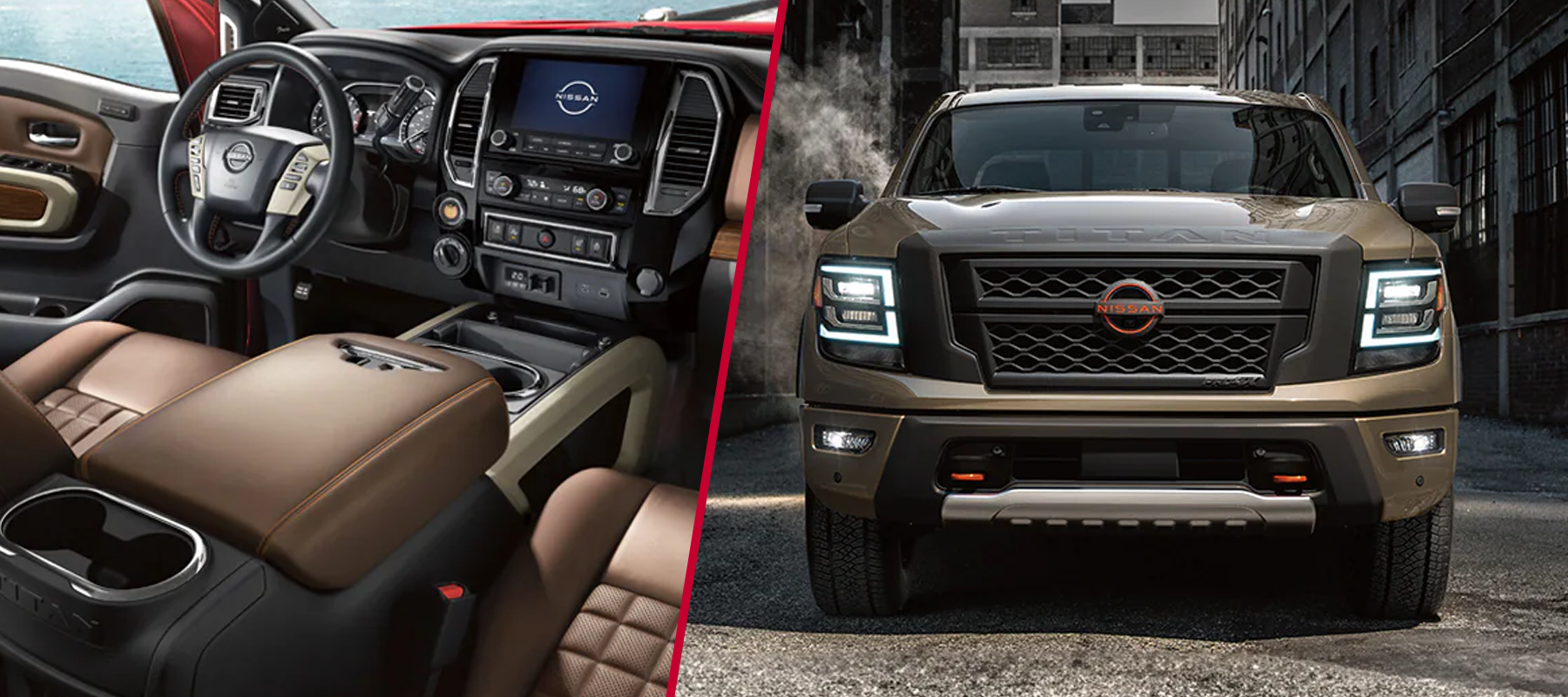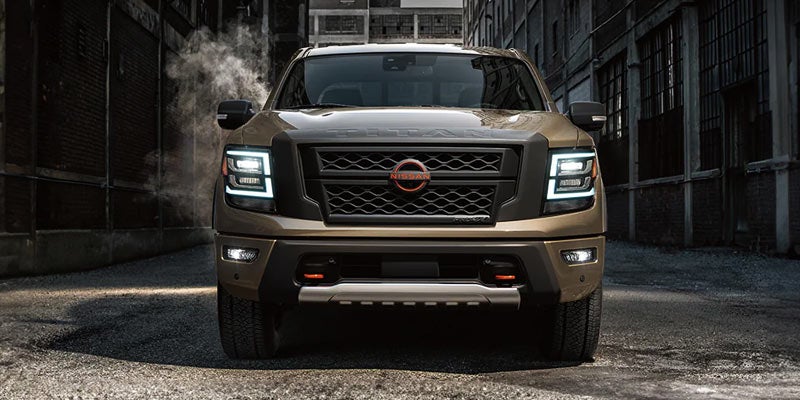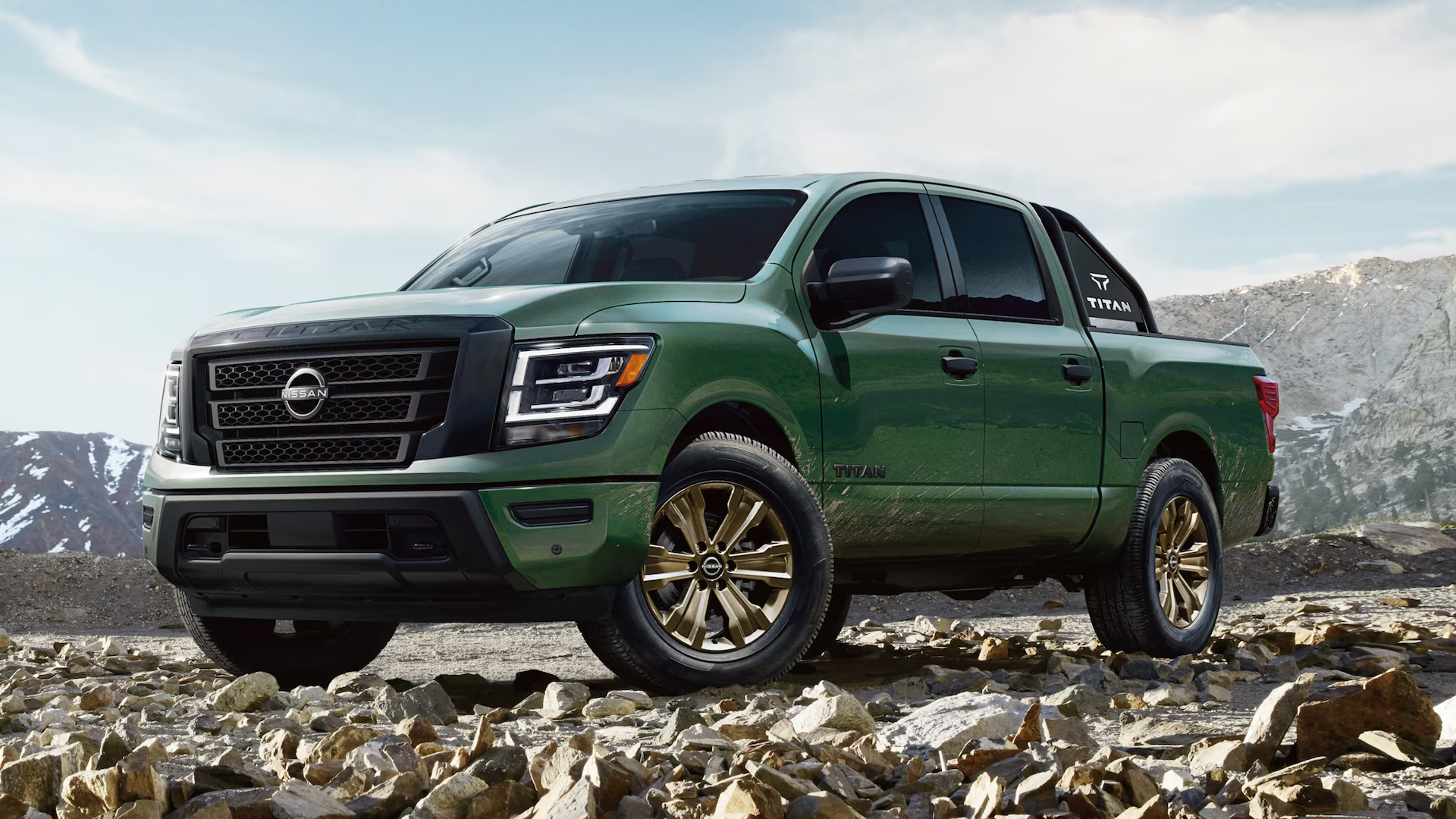In the ever-evolving world of trucks, one name that has stood out for nearly two decades is the Nissan Titan. Since its debut in 2003, the Titan has represented Nissan’s commitment to delivering a full-sized truck that could compete with the heavyweights from Detroit’s Big Three—Ford, Chevy, and Ram. But as the automotive landscape continues to shift, Nissan has made the tough decision to discontinue the Titan in 2024, marking the end of an era for the company’s foray into the competitive U.S. truck market.

A Brief History of the Nissan Titan
The Nissan Titan was launched in 2003 as a bold move by the Japanese automaker to enter the full-size pickup segment, which had traditionally been dominated by American brands. The Titan was a strong contender right from the start, offering a powerful 5.6-liter V8 engine, impressive towing capacity, and a rugged design that appealed to truck enthusiasts. Nissan positioned the Titan as a workhorse truck with off-road capability, aiming to attract buyers who needed both power and reliability.
The first-generation Titan, built from 2004 to 2015, gained a loyal fan base due to its strong performance and spacious cabin. However, despite its positive reception, the Titan struggled to make a significant dent in the U.S. market, where Ford’s F-Series, Chevy’s Silverado, and Ram’s 1500 trucks reigned supreme.
In 2016, Nissan introduced the second-generation Titan, aiming to revitalize the model and compete more aggressively in the full-size truck market. The updated Titan brought improved technology, more refined interiors, and a range of configurations, including the Titan XD, which was positioned as a heavier-duty option with enhanced towing and payload capabilities. Yet, despite these efforts, the Titan’s sales never reached the levels Nissan had hoped for.
Why Is the Nissan Titan Being Discontinued?
The decision to discontinue the Nissan Titan isn’t entirely surprising, given the truck’s performance in the market. Several factors contributed to Nissan’s choice to wind down production:

1. Fierce Competition
The full-size truck segment in the U.S. is one of the most fiercely competitive, dominated by long-standing, well-established models from American brands like Ford, Chevy, and Ram. These brands enjoy deep customer loyalty and a long history of producing trucks that cater to a wide range of buyers, from heavy-duty workers to weekend adventurers. Despite its qualities, the Titan always had difficulty breaking into this stronghold, often viewed as a secondary choice for most buyers.
2. Shifting Consumer Preferences
While trucks remain immensely popular, the market has seen a shift towards more diverse offerings, such as midsize trucks, electric vehicles (EVs), and hybrid models. Ford’s F-150 Lightning and the rise of Rivian’s electric trucks are examples of how consumer preferences are evolving, favoring greener, more technologically advanced vehicles. Nissan, like many automakers, is focusing its resources on expanding its EV lineup and addressing the growing demand for sustainability.

3. Low Sales Figures
Despite being a solid performer, the Titan consistently lagged behind its competitors in terms of sales. In 2020, the Titan accounted for less than 2% of full-size truck sales in the U.S., a figure that made it difficult for Nissan to justify continued investment in the model. Compared to industry leaders like the Ford F-Series, which sells hundreds of thousands of units annually, the Titan’s sales volume was relatively small.
4. Strategic Refocus on Core Models
Nissan has been undergoing a broader transformation strategy in recent years, focusing on streamlining its product lineup and investing in key growth areas. With the rise of electric vehicles, crossovers, and SUVs, the company is concentrating on segments where it can lead and innovate. Discontinuing the Titan allows Nissan to allocate more resources toward these strategic priorities, including EVs like the Ariya and popular crossovers like the Rogue and Pathfinder.

What the Discontinuation Means for Truck Buyers
For existing Nissan Titan owners, the discontinuation may raise questions about the future of their vehicles. While production of new Titans will cease, Nissan has assured owners that it will continue to provide service, parts, and support for the foreseeable future. For those considering purchasing a Titan, the remaining inventory is likely to be sold at significant discounts as dealerships look to clear stock, making it a potential opportunity to snag a deal on a full-sized truck before it’s gone.
However, for those looking forward to new models, Nissan’s exit from the full-size truck market may feel like a loss. The Titan represented a solid, reliable alternative to American-made trucks, especially for buyers who wanted something a little different from the mainstream options. With its discontinuation, Nissan leaves the segment dominated by domestic manufacturers once again.
The Titan’s Legacy
Though it may not have reached the sales heights of its rivals, the Nissan Titan leaves behind a respectable legacy. It was one of the few non-American trucks to challenge the U.S. full-size truck market, offering a unique blend of Nissan’s engineering prowess and the rugged capability that truck buyers demand.
The Titan earned a reputation for reliability and durability, and it brought innovations to the segment, such as the versatile Utili-track cargo system and Nissan’s attention to driver comfort in an often harsh and utilitarian class. The Titan XD, with its heavier-duty features, also filled a niche for truck buyers who needed more than a light-duty truck but didn’t want the bulk of a heavy-duty model.
As the Titan rides off into the sunset, it will be remembered for its bold attempt to carve out space in one of the most fiercely competitive automotive markets. For Nissan, this chapter may be closing, but it opens new doors for innovation in areas that align more closely with the future of transportation.

Looking Ahead
The discontinuation of the Nissan Titan is a reflection of broader trends in the automotive industry—electrification, sustainability, and evolving consumer demands. As Nissan shifts focus toward electric vehicles and crossovers, it signals a new chapter for the brand, one that emphasizes future-forward thinking and aligns with the push toward greener technology.
While we say goodbye to the Titan, Nissan’s move toward electric trucks in the future may still give truck enthusiasts something to look forward to. The brand is likely to continue innovating and could very well make a comeback in the truck market down the road, possibly with an electrified offering that combines the brand’s engineering expertise with the demands of the modern era.
For now, we salute the Nissan Titan, a truck that held its own in a tough market, brought excitement to the segment, and won the hearts of those who sought something a little different from the usual suspects.



